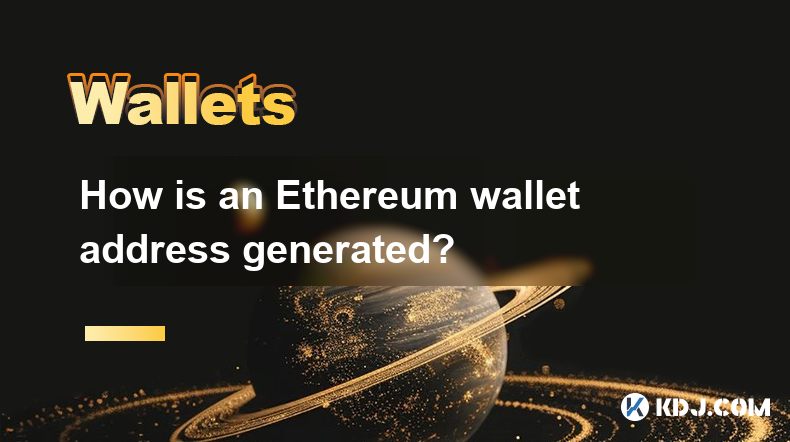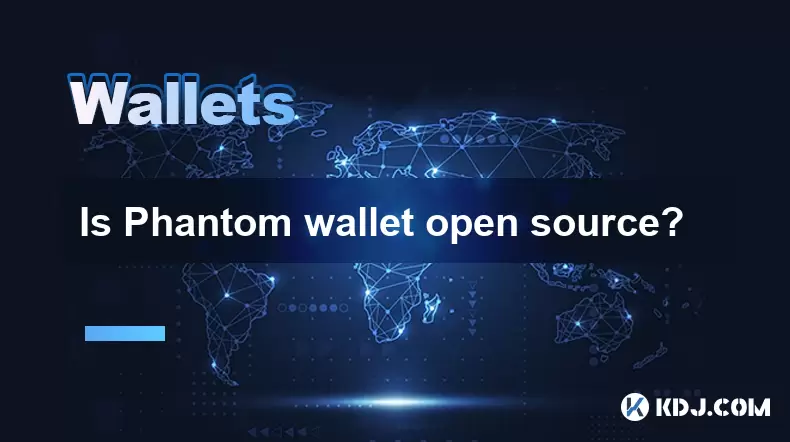-
 Bitcoin
Bitcoin $107,412.2566
-2.18% -
 Ethereum
Ethereum $2,480.5507
-4.05% -
 Tether USDt
Tether USDt $1.0002
-0.04% -
 XRP
XRP $2.2106
-2.83% -
 BNB
BNB $651.5314
-1.54% -
 Solana
Solana $146.5129
-3.39% -
 USDC
USDC $0.9999
-0.01% -
 TRON
TRON $0.2832
-0.87% -
 Dogecoin
Dogecoin $0.1620
-5.62% -
 Cardano
Cardano $0.5671
-4.79% -
 Hyperliquid
Hyperliquid $38.1838
-5.51% -
 Sui
Sui $2.8360
-5.20% -
 Bitcoin Cash
Bitcoin Cash $488.2333
-1.63% -
 Chainlink
Chainlink $13.0208
-5.05% -
 UNUS SED LEO
UNUS SED LEO $9.0529
0.22% -
 Avalanche
Avalanche $17.6888
-4.61% -
 Stellar
Stellar $0.2368
-2.48% -
 Toncoin
Toncoin $2.7502
-3.63% -
 Shiba Inu
Shiba Inu $0.0...01129
-4.90% -
 Litecoin
Litecoin $86.3079
-3.69% -
 Hedera
Hedera $0.1522
-4.07% -
 Monero
Monero $313.2491
-1.17% -
 Dai
Dai $0.9999
-0.03% -
 Polkadot
Polkadot $3.3331
-5.97% -
 Ethena USDe
Ethena USDe $1.0000
-0.01% -
 Bitget Token
Bitget Token $4.3908
-3.98% -
 Uniswap
Uniswap $6.8864
-9.27% -
 Pepe
Pepe $0.0...09565
-4.85% -
 Aave
Aave $261.8733
-6.20% -
 Pi
Pi $0.4662
-5.40%
How is an Ethereum wallet address generated?
Ethereum wallet addresses, derived from private keys via cryptographic hashing (like Keccak-256), are public identifiers distinct from the secret private key crucial for accessing funds. Different wallet types utilize similar underlying cryptographic principles.
Mar 18, 2025 at 11:25 am

Key Points:
- Ethereum wallet addresses are derived from cryptographic keys, specifically private keys.
- The process involves complex cryptographic hashing algorithms to ensure security and anonymity.
- Different types of Ethereum wallets (software, hardware, paper) use slightly different methods but the underlying principle remains the same.
- Understanding the generation process helps users appreciate the security implications of managing their private keys.
- The address itself is a publicly shareable identifier, distinct from the private key which must remain secret.
How is an Ethereum Wallet Address Generated?
The generation of an Ethereum wallet address is a fascinating process rooted in sophisticated cryptography. It doesn't involve a simple random number generator; instead, it relies on robust cryptographic techniques to ensure the security and integrity of your funds. At the heart of it all is the private key.
This private key is a randomly generated number, typically a very large integer. Think of it as the master key to your Ethereum kingdom. It's crucial to understand that this private key must be kept absolutely secret. Anyone with access to your private key has complete control over your Ethereum holdings.
The private key is then used as input for an elliptic curve cryptographic algorithm, specifically the secp256k1 curve used by Bitcoin and Ethereum. This algorithm performs complex mathematical operations on the private key to produce a corresponding public key.
The public key, unlike the private key, is not secret. In fact, it’s the foundation for your Ethereum wallet address. However, it’s still not the address itself. The public key undergoes further transformation. It’s hashed using a cryptographic hash function, typically Keccak-256, a function specifically designed for security and producing a fixed-size output.
The result of the Keccak-256 hash of the public key is then truncated to produce the final Ethereum wallet address. This address is the publicly visible identifier you use to receive and send Ethereum. It’s a string of 42 characters, beginning with "0x".
The process ensures that even if someone knows your public key (which they will, as it's part of transactions), they cannot derive your private key. This is the core principle of public-key cryptography, providing the security for your Ethereum funds.
Different types of Ethereum wallets handle the key generation process slightly differently, but the underlying cryptographic principles remain the same.
- Software Wallets: These wallets generate keys using algorithms built into their software. The process is usually automated, requiring minimal user interaction. Security relies heavily on the security of the software and the user's device.
- Hardware Wallets: These wallets generate keys securely within a dedicated hardware device. This provides a higher level of security as the keys never leave the physical device. They are generally considered the most secure option.
- Paper Wallets: These involve generating keys offline and printing them on paper. This offers a high degree of security from online threats, but requires meticulous care to prevent loss or damage.
Understanding the Private Key's Importance:
Remember, your private key is paramount. Without it, you cannot access your Ethereum. Losing your private key is equivalent to losing access to your funds permanently. There's no central authority to recover them for you. This is why secure key storage is critical.
Frequently Asked Questions:
Q: Can I generate an Ethereum wallet address manually?
A: While technically possible, it’s extremely impractical and dangerous. The cryptographic operations involved are complex and require specialized software. Manual generation greatly increases the risk of errors, leading to loss of funds. Using established wallet software is strongly recommended.
Q: Is my Ethereum address linked to my personal identity?
A: No, your Ethereum address does not directly reveal your personal identity. It's a pseudonymous identifier. However, linking your address to other online activities or platforms could potentially reveal some information about you.
Q: How secure is my Ethereum wallet address?
A: The security of your Ethereum wallet address depends primarily on the security of your private key. As long as your private key remains confidential, your funds are protected. However, vulnerabilities in wallet software or hardware, or user negligence, can compromise security.
Q: Can I change my Ethereum wallet address?
A: You cannot change your Ethereum wallet address directly. Each address is linked to a specific private key. To obtain a new address, you need to generate a new key pair (private and public key) using your wallet software. This effectively creates a new wallet address.
Q: What happens if I lose my private key?
A: If you lose your private key, you lose access to the Ethereum associated with that address. There is no way to recover the private key from the address. Therefore, securely backing up your private key is crucial.
Q: How often should I create a new Ethereum wallet address?
A: There is no strict rule about how often to create new addresses. Some users prefer to create a new address for each transaction to enhance privacy. Others use a single address for all their transactions. The choice depends on your privacy preferences and security practices.
Disclaimer:info@kdj.com
The information provided is not trading advice. kdj.com does not assume any responsibility for any investments made based on the information provided in this article. Cryptocurrencies are highly volatile and it is highly recommended that you invest with caution after thorough research!
If you believe that the content used on this website infringes your copyright, please contact us immediately (info@kdj.com) and we will delete it promptly.
- Bitcoin's Pattern Break: Are HODLers the Key to the Next Surge?
- 2025-07-04 18:50:12
- Bitcoin Price, Trump's Bill, and the $150K Dream: A NYC Take
- 2025-07-04 19:50:12
- Ethereum, LILPEPE, and the July Bounce: Will Pepe Steal ETH's Thunder?
- 2025-07-04 19:10:12
- Binance Institutional Loans: Unlocking 4x Leverage and Zero Interest for Whales
- 2025-07-04 19:15:12
- Bitcoin Bull Run: Analysts Eye Peak in Late 2025?
- 2025-07-04 19:20:13
- Pepe Indicators, Bullish Forecast: Can the Meme Coin Rally?
- 2025-07-04 19:25:12
Related knowledge

How to cancel a pending transaction in Phantom wallet?
Jul 03,2025 at 07:21pm
Understanding Pending Transactions in Phantom WalletA pending transaction in the Phantom wallet occurs when a user initiates a transfer or interaction with the Solana blockchain, but it hasn't yet been confirmed by the network. This can happen due to various reasons such as low transaction fees, network congestion, or incorrect gas settings. It's import...

How to see the estimated value of my tokens in Phantom wallet?
Jul 04,2025 at 12:21am
What is Phantom Wallet?Phantom wallet is one of the most popular cryptocurrency wallets designed for the Solana blockchain. It allows users to store, send, receive, and manage various tokens built on Solana, including SPL tokens and NFTs. The wallet offers a user-friendly interface, making it accessible for both beginners and advanced users in the crypt...

How to lock my Phantom wallet extension?
Jul 03,2025 at 11:14am
What Is the Phantom Wallet and Why Lock It?The Phantom wallet is a popular non-custodial cryptocurrency wallet designed for interacting with the Solana blockchain. Supporting both browser extensions and mobile apps, Phantom allows users to store, send, receive, and stake SOL tokens, as well as interact with decentralized applications (dApps). Securing y...

Does Phantom wallet offer two-factor authentication (2FA)?
Jul 03,2025 at 09:00am
Understanding Phantom Wallet and Its Security FeaturesPhantom wallet is a widely used non-custodial cryptocurrency wallet that supports the Solana blockchain. It allows users to store, send, receive, and interact with decentralized applications (dApps) seamlessly. As security is a top priority for any crypto wallet user, security features like two-facto...

What is "rent" on Solana and how does it affect my Phantom wallet?
Jul 02,2025 at 08:35pm
Understanding 'Rent' on SolanaIn the context of Solana, the term 'rent' refers to a storage fee that users pay for maintaining data on the blockchain. Unlike Ethereum, where storage costs are paid once via gas fees during contract deployment, Solana implements a recurring cost model to ensure efficient usage of network resources. This means that any acc...

Is Phantom wallet open source?
Jul 03,2025 at 12:29am
What is Phantom Wallet?Phantom wallet is a non-custodial cryptocurrency wallet primarily designed for the Solana blockchain. It allows users to store, send, receive, and interact with decentralized applications (dApps) on the Solana network. The wallet is available as a browser extension and mobile application, offering a seamless experience for both be...

How to cancel a pending transaction in Phantom wallet?
Jul 03,2025 at 07:21pm
Understanding Pending Transactions in Phantom WalletA pending transaction in the Phantom wallet occurs when a user initiates a transfer or interaction with the Solana blockchain, but it hasn't yet been confirmed by the network. This can happen due to various reasons such as low transaction fees, network congestion, or incorrect gas settings. It's import...

How to see the estimated value of my tokens in Phantom wallet?
Jul 04,2025 at 12:21am
What is Phantom Wallet?Phantom wallet is one of the most popular cryptocurrency wallets designed for the Solana blockchain. It allows users to store, send, receive, and manage various tokens built on Solana, including SPL tokens and NFTs. The wallet offers a user-friendly interface, making it accessible for both beginners and advanced users in the crypt...

How to lock my Phantom wallet extension?
Jul 03,2025 at 11:14am
What Is the Phantom Wallet and Why Lock It?The Phantom wallet is a popular non-custodial cryptocurrency wallet designed for interacting with the Solana blockchain. Supporting both browser extensions and mobile apps, Phantom allows users to store, send, receive, and stake SOL tokens, as well as interact with decentralized applications (dApps). Securing y...

Does Phantom wallet offer two-factor authentication (2FA)?
Jul 03,2025 at 09:00am
Understanding Phantom Wallet and Its Security FeaturesPhantom wallet is a widely used non-custodial cryptocurrency wallet that supports the Solana blockchain. It allows users to store, send, receive, and interact with decentralized applications (dApps) seamlessly. As security is a top priority for any crypto wallet user, security features like two-facto...

What is "rent" on Solana and how does it affect my Phantom wallet?
Jul 02,2025 at 08:35pm
Understanding 'Rent' on SolanaIn the context of Solana, the term 'rent' refers to a storage fee that users pay for maintaining data on the blockchain. Unlike Ethereum, where storage costs are paid once via gas fees during contract deployment, Solana implements a recurring cost model to ensure efficient usage of network resources. This means that any acc...

Is Phantom wallet open source?
Jul 03,2025 at 12:29am
What is Phantom Wallet?Phantom wallet is a non-custodial cryptocurrency wallet primarily designed for the Solana blockchain. It allows users to store, send, receive, and interact with decentralized applications (dApps) on the Solana network. The wallet is available as a browser extension and mobile application, offering a seamless experience for both be...
See all articles

























































































